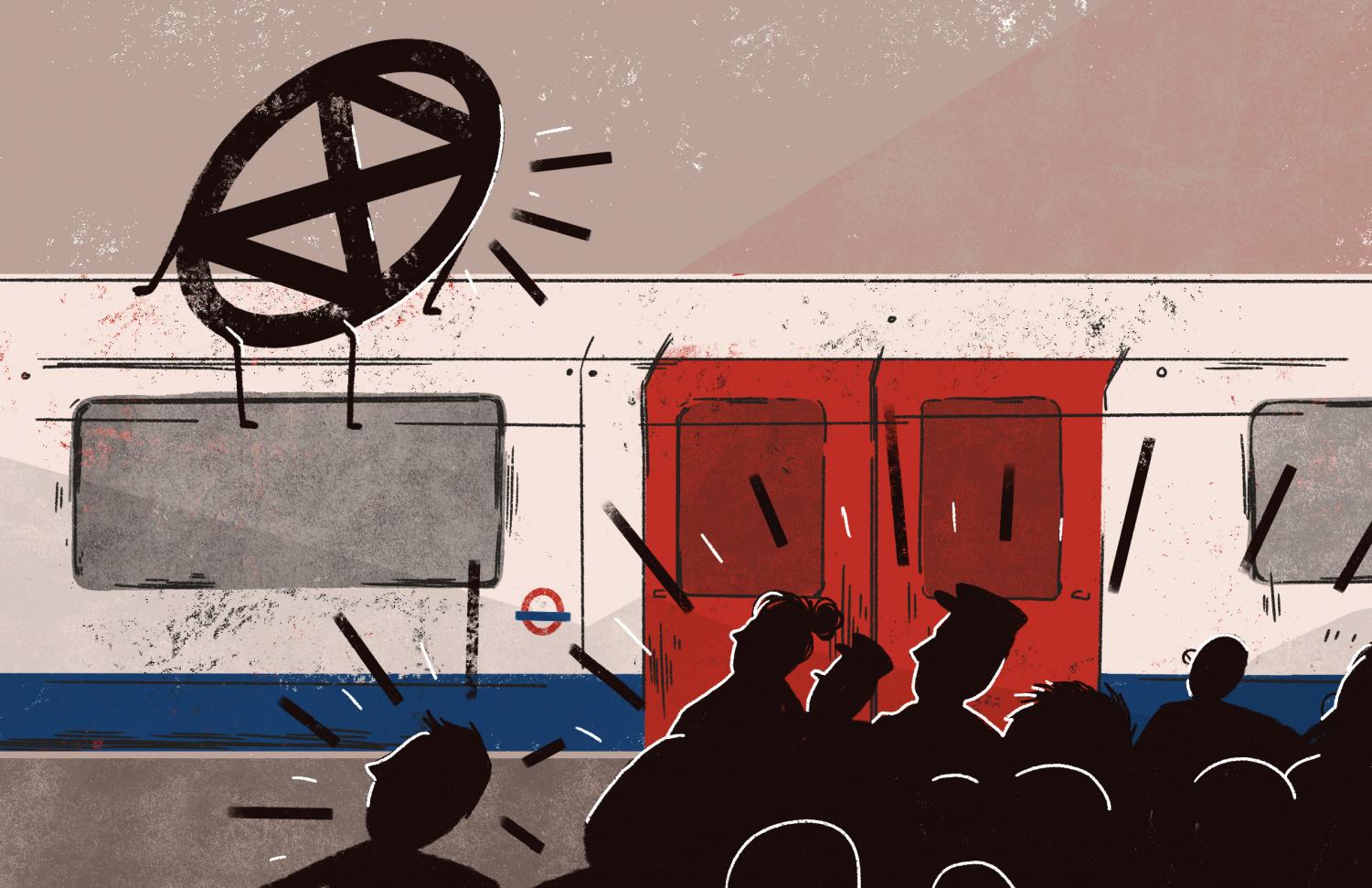Editorial: Protests keep complacency from going extinct
October 26, 2019

Climate activists are taking to the streets across the globe to rally for legislative action against an environmental catastrophe. In London, the global climate activist group Extinction Rebellion has been performing a series of “autumn uprising” protests that have resulted in nearly 1,600 arrests since it began, as reported Oct. 18 by The Guardian.
On Thursday, Oct. 17, these protests took a turn when protestors crawled on top of a London tube—the city’s train system—to bring attention to their demands. However, this took place during rush hour and, of course, upset the passengers. In response, the commuters ripped one of the protestors from the top of the train car and attacked him physically, while another ran along the top of the train until being pulled off as well, as reported Oct. 17 by BBC News.
By the end of the incident, police officers arrested eight Extinction Rebellion, or XR, protestors on charges of “obstructing the railway,” as reported Oct. 18 by ABC News.
This is one of many planned protests that have infiltrated metro-London since Oct. 7. But, afterward, both XR members and police agreed that things went too far.
Despite voicing regret for their short-sighted and ill-planned actions, the London police “effectively banned Extinction Rebellion’s autumn uprising protests from the whole of London,” according to the Guardian story.
It is the police’s supposed duty to protect and serve their communities. Was the police force protecting the people of London who did not want to join the protests and were being affected by their happenings? Yes. Was the police force using public fear as a reason to silence a group of activists? Also yes.
Banning activists from speaking truth to power is a clear-cut way to silence voices that don’t encourage the norm. After all, that is the purpose of any protest—to speak out against the norm that is endangering certain communities, or in this case, the entire world.
But speaking out against the ways of the world cannot include action that is taken lightly. Protestors did not crawl atop train cars to stop a mother from going home to her children or to stop a businessman from getting to his meetings. They climbed on top of train cars to open eyes to the injustice in the world and uncertainty for the future—not just for themselves, but for all those surrounding them, even the ones telling them to stop.
People need to get on board with the fact that the world is dying. It’s happening before our very eyes, and if the only way to get this message across clear as day is taking a stand in highly populated public places, then let the trains stall, let the lines stack up and let the people see what it really means to rally for a cause.







